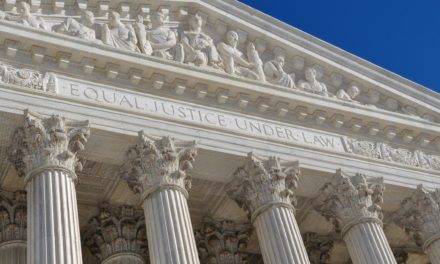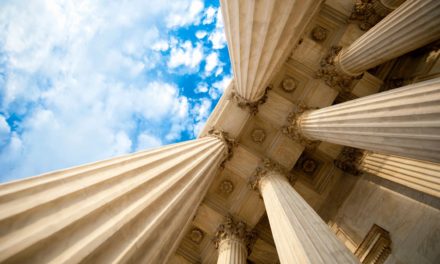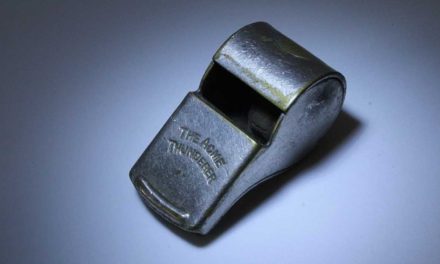Presidents James Madison, Abraham Lincoln, Grover Cleveland, Woodrow Wilson, Franklin D. Roosevelt, John F. Kennedy, and Ronald Reagan shared one glaring personal trait: they did not want the public to know much about their personal health. They were Commanders in Chief and simultaneously Secrets in Chief. Their doctors did as they were told and kept diagnosis, treatment and especially prognosis tucked away from the glaring public eye.
Medical ethics are rules physicians follow when treating patients. The most famous is the first rule of medical ethics: Do No Harm. Nonmaleficence—i.e. do not harm—is the world standard and applies to the White House just as it does to a one-room walk-up in the bad part of Everytown, USA. It is the most important obligation every physician has to every patient. Beneficence—i.e. Do Good—demands that doctors benefit patients and their welfare. They are the halves of a single apple.
However, the basic rules do not seem to apply the same way to physicians treating the President of the United States. Those physicians have political constraints layered over, around and between medical constraints. At least for the President, re-election is more important than mere physical health. Physicians are ethically obliged to honor their patients confidentiality, even if national security issues would demand otherwise. The ethical question is whether the President’s physicians are also obligated to advance his re-election prospects even if it risks the health of others. If they are professionally and politically bound, they face the classic ethical dilemma—a situation in which a difficult choice has to be made between two courses of action, either of which entails transgressing a moral principle.
If a physician knows a patient has a contagious disease that will be transmitted to others if the patient insists on exposing them because he comes into “contact” with them, the physician might have to choose which moral principle he will transgress: patient confidentiality or patient infecting someone else by refusing to abide by safe medical protocols.
Those choices do not bother Kings, Dictators, Tribal Chiefs, or US Presidents. One leading Professor of Medical Ethics put it this way. “The issue is really difficult because there is not a bright line . . . for the President there is no bright line as to whether or not it’s something the public has a right to know or not. . . There has to be a threat to community or other people, we can only violate someone’s privacy when protection of their privacy would result in harm to others and that’s why it’s not a bright line. We have to make a judgement call about when non-disclosure is going to result in harm to others.”[1]
Another medical ethics expert advanced the prognosis. “Once again, President Trump is playing doctor-in-chief. Once again, his medical judgment is wrong, and the example he is setting by his behavior is worse. Trump announced that he began taking hydroxychloroquine and zinc to prevent Covid-19 after a White House staffer tested positive for Sars-CoV-2, the novel coronavirus. Simultaneously, he and Vice President Pence have consistently ignored the advice of their own experts to wear face masks.”[2]
Once off to a false start, the status quo evaporated—not the disease itself—just how the President sees it. “The special treatment U.S. President Donald Trump received to access an experimental COVID-19 drug raises fairness issues that start with the flawed health care system many Americans endure and end with the public’s right to know more about his condition, ethics and medical experts say. Regeneron Pharmaceuticals Inc. revealed on Tuesday how rare it was for anyone to get the drug it gave Trump outside of studies testing its safety and effectiveness. The drug, which supplies antibodies to help the immune system clear the coronavirus, is widely viewed as very promising. Trump also received the antiviral Remdesivir, and the steroid dexamethasone; it’s impossible to know whether any of these drugs did him any good. ‘He deserves special treatment by virtue of his office,’ said George Annas, who heads Boston University’s Center for Law and Health Ethics. The question is whether it’s good treatment. The public is getting mixed messages about his condition and that’s a problem . . . there’s a right to know anything that could affect Trump’s ability to do his job.”[3]
Too late for that. We didn’t know whether he could do his job in 2016. Nothing’s changed.

I am an author and a part-time lawyer with a focus on ethics and professional discipline. I teach creative writing and ethics to law students at Arizona State University. Read my bio.
If you have an important story you want told, you can commission me to write it for you. Learn how.
[1] Jana Shortal. October 5, 2020. “What are the medical ethics behind disclosing a president’s health information?” https://www.kare11.com/article/news/local/breaking-the-news/what-are-the-medical-ethics-behind-disclosing-a-presidents-health-information/89-e743d6c0-e4a8-43e5-96a8-72bc4bf2175e
[2] https://www.washingtonpost.com/opinions/2020/05/20/trumps-medical-judgment-is-wrong-example-hes-setting-is-worse/
[3] https://www.ctvnews.ca/health/coronavirus/trump-got-quick-access-to-experimental-treatment-but-is-that-ethical-1.5135899






 I am an author and a part-time lawyer with a focus on ethics and professional discipline. I teach creative writing and ethics to law students at Arizona State University.
I am an author and a part-time lawyer with a focus on ethics and professional discipline. I teach creative writing and ethics to law students at Arizona State University.  My latest novel is Hide & Be.
My latest novel is Hide & Be.  If you have an important story you want told, you can commission me to write it for you.
If you have an important story you want told, you can commission me to write it for you.